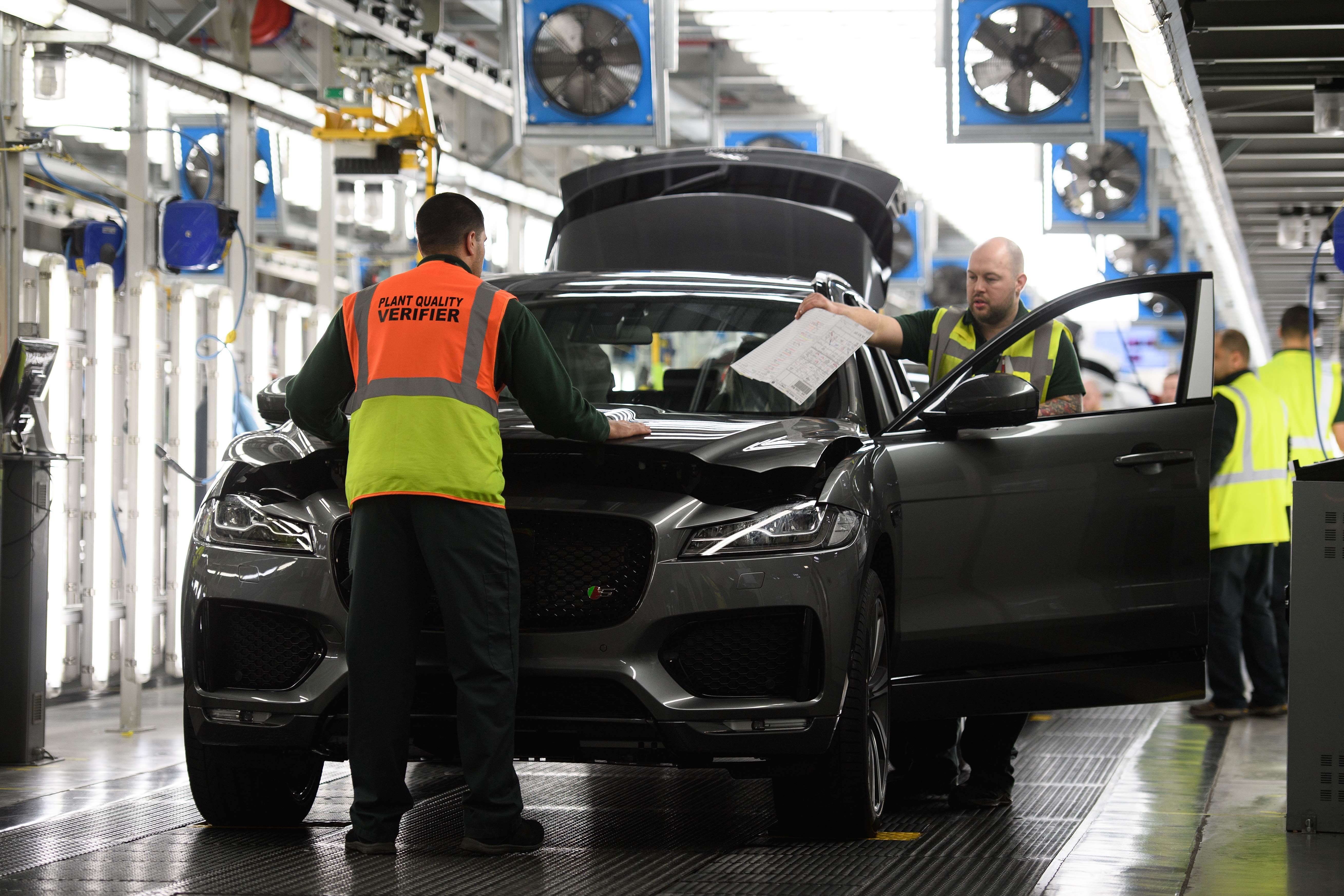Is Brexit really to blame for UK car production slump?
Output falls by 45% as industry calls on the Government to rule out no-deal

A free daily email with the biggest news stories of the day – and the best features from TheWeek.com
You are now subscribed
Your newsletter sign-up was successful
Car production in Britain slumped by almost a half in April following a series of factory closures brought on in anticipation of Brexit.
Figures from the Society of Motor Manufacturers and Traders (SMMT) show that vehicle production in the UK dropped by 44.5% in April compared to the same period in 2018, Auto Express reports.
The number of cars produced fell from 127,970 to 70,971 year-on-year, equating to a drop of 56,999, the motoring magazine says. Manufacturing of vehicles destined for the home market dropped by 43.7%, while cars for export slumped by 44.7%.
The Week
Escape your echo chamber. Get the facts behind the news, plus analysis from multiple perspectives.

Sign up for The Week's Free Newsletters
From our morning news briefing to a weekly Good News Newsletter, get the best of The Week delivered directly to your inbox.
From our morning news briefing to a weekly Good News Newsletter, get the best of The Week delivered directly to your inbox.
Although car manufacturing has been in decline for 11 consecutive months, The Guardian says that April’s slump “was much steeper than the 15% seen in February and the 13% reported in March”.
This is because a number of manufacturers chose to hold their planned factory shutdowns earlier than usual to minimise any “disruption” that may have been caused by Britain’s divorce with the European Union, which was due to take place on 29 March, the newspaper reports.
Is Brexit really to blame?
Yes, to an extent. Factory shutdowns are by no means an uncommon occurrence in the motoring industry and are often used by carmakers to upgrade equipment and prepare for new models.
A free daily email with the biggest news stories of the day – and the best features from TheWeek.com
A number of carmakers - including Jaguar Land Rover, Honda, BMW Mini and Vauxhall - chose to move their closures forward to ready themselves for Brexit, The Daily Telegraph says. This includes “stockpiling” of parts, changes to logistics and supply chains, and the training “of staff to deal with new customs procedures”.
However, the factory shutdowns were seemingly brought forward in vain as the UK then postponed the Brexit deadline to 31 October, the newspaper says. Given the demands of a factory closure, such as managing staff and supplier commitments, it’s unlikely that carmakers will be able to carry out another shutdown when Britain leaves the EU later this year.
But Brexit isn’t all to blame for the production slump. Auto Express also claims that the drop in car manufacturing is also the result of “slowing demand in key international markets”, including the UK, EU, US and China.
What’s been the response?
SMMT boss Mike Hawes is in no doubt about the impact of Brexit. “Today’s figures are evidence of the vast cost and upheaval Brexit uncertainty has already wrought on UK automotive manufacturing businesses and workers,” he said.
“Prolonged instability has done untold damage, with the fear of ‘no deal’ holding back progress, causing investment to stall, jobs to be lost and undermining our global reputation.”
Hawes insists that a no-deal Brexit “must be taken off the table immediately and permanently”, if the industry is to “get back to business” and keep Britain “at the forefront of the global technology race”.
Shadow business secretary Rebecca Long-Bailey agrees. She says the “alarming figures” send “stark warnings of what could come from a hard right Tory leader crashing the UK out of Europe with no deal”, the Daily Express reports.
“The UK car industry is being undermined by this incompetent government and its threats of a no deal,” she said. “Their mishandling of Brexit has created prolonged uncertainty, and they have simply failed to engage with the domestic challenges facing the industry such as electrification.”